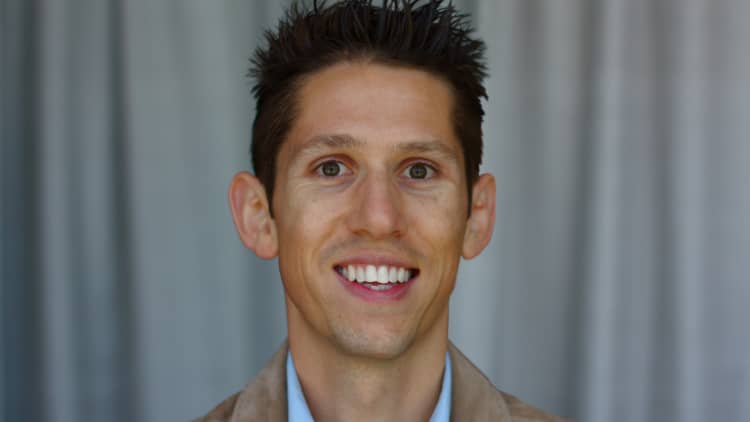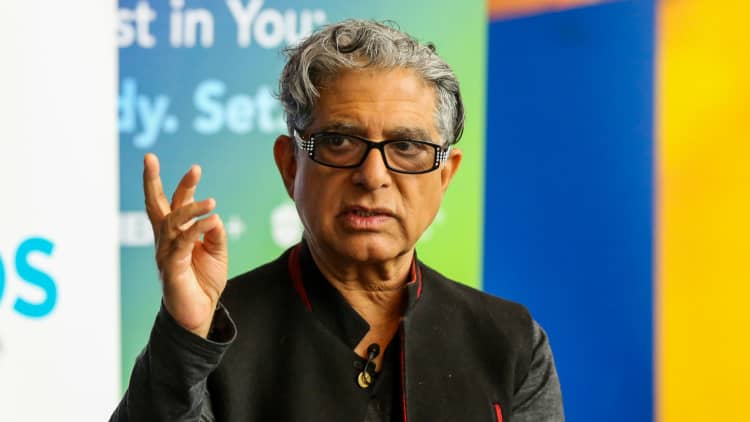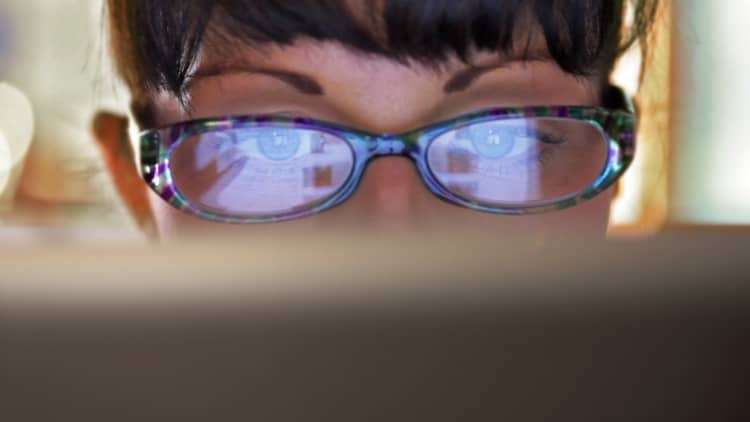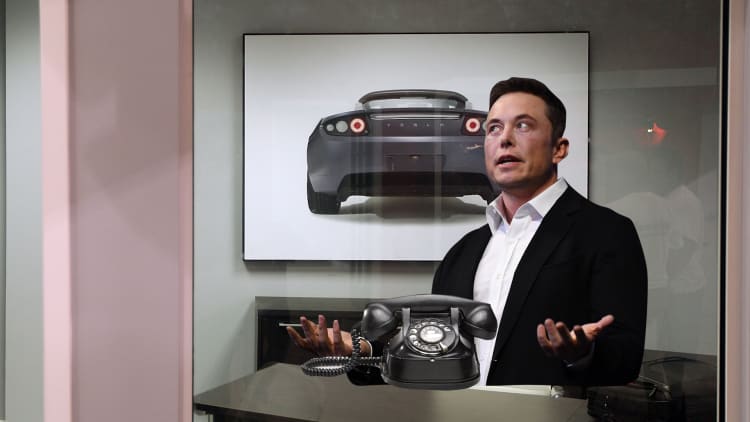Those idolizing Elon Musk might rethink that notion after learning more about his punishing schedule. It's a routine experts say could make people less productive, less creative and even shave years from their lives.
Facing mounting pressure to meet production goals at Tesla, Musk says he's been working 120 hours some weeks. He also says he hasn't taken time off in years and he sometimes resorts to using sleep medication.
These habits seem to have taken their toll on Musk. The often upbeat and witty founder told the New York Times he felt exhausted. He "alternated between laughter and tears," at several points in the recent Times article and sometimes stopped talking altogether, possibly overcome by emotion.
"It's not been great, actually," Musk said. "I've had friends come by who are really concerned."
Research has found that some people are resistant to sleep deprivation but those people are few and far between, says Charlene Gamaldo, an associate professor at the Johns Hopkins School of Medicine Neurology Department and medical director at Johns Hopkins Center for Sleep. Furthermore, little research has been done to study the long-term health effects on those people.
While you can technically function on very little sleep, you won't operate at your body and mind's highest levels. When sleep deprivation becomes a lifestyle, you can short-change yourself in the long-term. "The purpose of life is to be able to function," says Andrew Westwood, a board certified sleep expert and assistant professor of neurology at Columbia University Medical College.
Here's how inadequate sleep can seriously damage your health and significantly lower your creativity and potential.
1. You'll struggle with focus
Continuous lack of sleep can negatively impact your "ability to concentrate and focus," says Westwood. When that happens, he says, other mental abilities like memory begin to degrade and your body starts to function on autopilot.
Sleep impairment can also "drive anxiety and make you feel groggy," adds Westwood, making it harder to focus on a task at hand.
One study says that after 17-19 hours without sleep our bodies function as if drunk.
Westwood points to research showing that drowsy drivers are more likely to be involved in car accidents. "That can be extrapolated to any situation," he says. "You make more errors, the [less] sleep you get."
The effects of sleep deprivation are so strong that a number of industries have imposed restrictions on consecutive work hours. Pilots cannot fly more than 60 hours a week and medical residents are limited to a maximum of 80 hours a week.

2. You'll get sicker — and could shave years off your life
To function at your best, experts say the average adult needs seven to nine hours of sleep a night. However, working long hours disrupts your ability to get this amount of shuteye and may lead to difficulty falling asleep. Frequent waking and waking without feeling refreshed means your body hasn't had a chance to repair itself or recharge.
Routinely sleeping fewer than six hours a night has been linked to hypertension, diabetes, breast cancer in women, prostate cancer in men and increased mortality, according to Gamaldo. People who continuously deprive themselves of sleep are "potentially shaving years off their lives."
Research also suggests an association between sleep impairment and cognitive disorders like Alzheimer's and dementia, thanks in part to a build-up of beta-amyloid, a metabolic waste product in the brain that can get in the way of proper brain function.
Of course, you don't need to work 120 hours a week to fail to maximize the power of sleep. Gamaldo points out that environmental stimulants, like watching television or scrolling through your smartphone late at night, can impede your brain's ability to produce melatonin — a hormone that your brain normally secretes more of at night, and which tells your body when it's time to sleep and wake — disrupting rest further.
3. You'll become less productive — and less creative
Ironically, Musk works long hours in order to boost his electric car company's output. Yet, forgoing sleep for work could have the opposite desired effect and actually lower productivity.
According to Gamaldo, research shows that people who shave off just two hours of sleep from what they routinely need have a drop in their reaction time and ability to critically process information. This is especially problematic for executives who must think quickly and creatively on their feet, she says.

4. You'll make room for only short-term fixes
While many, including Musk, use caffeine to boost alertness and overcome sleepiness, this stimulant is not effective in helping people make higher level executive decisions. "It will get you through the grogginess and allow you to drive to work, but it won't help you get through writing a thesis," says Gamaldo. Plus, the effects aren't long lasting. For most people, caffeine takes 30 minutes to kick in and the mental boost is gone in 30 minutes to one hour. "It's a short term band-aid," says Gamaldo.
Another poor practice? Working long hours during the week and trying to catch up on sleep during the weekend. "You can't rob Peter today and pay Paul tomorrow," says Gamaldo. But that doesn't mean you should just throw in the towel, she warns. "It's still better than nothing."

A better idea, according to sleep experts, is to create a routine that prioritizes sleep and recharging. Those in "high power high intensity jobs," might even consider a wind-down period to transition into sleep. "Trying to go from boardroom to bedroom isn't going to work" says Westwood. "You need to decompress from your day."
Try doing things that you enjoy and find relaxing, such as writing in a diary, meditating or planning out your to-dos for the next day. "Your mind shouldn't be blank," explains Westwood, "but it also shouldn't be ruminating."
Finally, says Gamaldo, keep your wake time consistent even on weekends so that your body naturally knows when it's time to go back to bed.
"Your brain likes routine," she explains. "It likes to associate certain things with the wake state and the sleep state." Refrain from doing work in bed and go to another room when you can't sleep so your brain doesn't associate the bedroom with your "wake state."
Your room should be a dark cave, adds Gamaldo, and this environment shouldn't be for anything but "sleep, sex [and] sickness."
5. You'll become less efficient
Musk admitted to sometimes taking Ambien, a sedative used for short-term treatment of insomnia, because "it is often a choice of no sleep or Ambien." His reliance on this drug has worried some Tesla board members, who note that sometimes the medication does not put Musk to sleep, the New York Times reports.
While some people can build up a slight tolerance to the drug, says Westwood, it's more likely that the burdens of Musk's day are trumping the sleep effects of the pill.
Another area of concern is that Ambien lasts for roughly eight hours. So if you don't get a full eight hours of sleep after taking the drug, "you'll be less efficient during the day because you're still tired," says Westwood. "And things will take longer to do."
However, medicine should not be the first recourse for sleep impairment. According to the American College of Physicians and the American Academy of Sleep Medicine, the best remedy is through cognitive behavioral treatment because it's much more effective and sustainable, says Gamaldo.
"Do we use sleep aids? Of course. But it should ideally be used as a short-term option," she explains. "I strive to have my patients use it no more than a few times a week, at the lowest dose, to minimize the frequency and side effects."
"The fact that [Musk] needs sleeping pills suggests that this isn't sustainable for him," says Westwood. "No one should need to take medicine for a normal bodily function."
6. You'll become the worst version of yourself
Among those who reached out with concern for Musk this week was Thrive Global founder and Uber board member Arianna Huffington. Huffington has been a vocal advocate for sleep since she says she worked herself to the point of exhaustion in 2007. At one point, she said she even collapsed, coming to in a pool of her own blood.
"I can tell you with authority that when I'm exhausted, when I'm running on empty, I'm the worst version of myself," she previously told CNBC Make It.
In a recently published open letter to Musk, Huffington implored him to take better care of his health, citing how even a visionary such as Franklin Delano Roosevelt took breaks during crucial times to find fresh solutions only he could.
"Working 120-hour weeks doesn't leverage your unique qualities, it wastes them," she wrote. "You can't simply power through—that's just not how our bodies and our brains work."
Like this story? Subscribe to CNBC Make It on YouTube!
Don't miss: What Elon Musk could learn from Jeff Bezos and Warren Buffett



